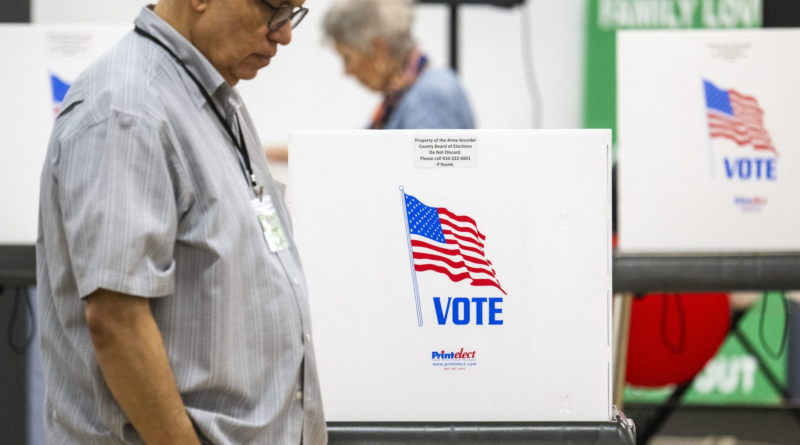American voters were asked about the economy. The overwhelming answer shows why they picked Trump over Harris
In the 2024 election, voters made their decision based on what political strategists long considered to be the central issue of every presidential campaign: the economy.
Exit polls on Tuesday showed a stark partisan divide. Some two-thirds (67%) of voters said the condition of the economy was “not good/poor,” and only 32% thought the economy was “excellent/good.” Among those who viewed the economy negatively, 69% were Republicans and 29% were Democrats, according to the same poll. Only 8% of those with a positive outlook on the economy were Republican while a whopping 91% of people who felt the economy was doing well were Democrats.
Those numbers presaged an insurmountable hurdle for the incumbent Democratic Party. And it appears Vice President Kamala Harris couldn’t outrun the negative sentiment.
The actual state of economic play is more complex. Inflation has come down to 2.4% from a high of 9% in June 2022. But that means prices are growing more slowly, not that they’re low.
“[President-elect Donald] Trump is expected to be largely inheriting a pretty decent economy, with one exception, while inflation rates have fallen back down to earth, price levels are still pretty high,” Glenmede vice president of investment strategy Michael Reynolds said. “And that’s ultimately what matters for households.”
Essentially, Americans are still feeling financial pressure in their daily lives. The U.S. recovery from the pandemic-era economic slump outpaced the rest of the world. But that was little solace for voters struggling with high costs of living, a housing shortage, and a general sense of economic malaise.
Broad macroeconomic trends, even if they’re positive, are far removed from people’s everyday lives, according to Frank Kelly, senior political strategist at the investment firm DWS. “The average mom and pop isn’t looking at the Bureau of Labor Statistics report, right?,” he said.
Any macroeconomic gains were entirely overshadowed by voters’ feelings about the dollars and cents in their own personal budgets. In exit polls voters fretted over the cost of virtually every household staple from food in their pantry to gas in their trucks to the price of their medications. An AP poll of 120,000 voters found that roughly nine in 10 were “very” or “somewhat” concerned about grocery prices, and eight in 10 were worried about the cost of medical care and gas.
Trump succeeded in convincing voters concerned about the economy that he was best suited to fix their problems because he spoke plainly, Kelly said. “He sounded as if you were in a Lions Club meeting or a Knights of Columbus meeting and somebody was talking about the economy,” Kelly said. “He really spoke to the common man in his language.”
The economy ranked as a top issue among key voting groups that Trump won away from Harris. Among all Hispanic voters, 70% judged the economy as “poor,” according to a Washington Post exit poll. The same poll showed that Hispanic voters prioritized the economy more so than the overall electorate. Some 40% of Hispanics said the economy was their most important issue; two-thirds of that subset voted for Trump.
Latinos banked on Trump to improve the economy
Trump made major inroads with Hispanic voters during this election cycle. Last election President Joe Biden won Hispanic voters 65-32 against Trump. In 2024 the Trump campaign saw a 25 point swing among Hispanics, which amounted to just a 53-45 win for Harris.
The economy was a top issue in the 2020 election as well, in large part because the pandemic was still raging across the country. Yet despite that, four years ago there was a larger share of the electorate with a positive view of the economy. In 2020, there was an even split between those who thought the economy was strong, and those who thought the opposite, according to CNN exit polls from both elections. One thing that did hold true across elections was that voters with an unfavorable view of the economy punished the incumbent party. In 2020, Biden won voters with a negative view of the economy by 63 points. Harris lost them by 40.
However, the feeling of dissatisfaction wasn’t just limited to the economy. It seemingly touched all aspects of American life, as voters registered dramatic levels of disappointment in the direction of the country.
Forty-three percent of voters said they were dissatisfied with the direction of the country, according to an NBC News exit poll. In that same poll, 29% opted for an even harsher assessment of the country, reporting they were “angry” at where the U.S. was headed. For some Americans their aggravation required cataclysmic change to the status quo. About 30% of voters wanted total upheaval in how the U.S. is run, according to the AP poll.
A newsletter for the boldest, brightest leaders:
CEO Daily is your weekday morning dossier on the news, trends, and chatter business leaders need to know.
Sign up here.




